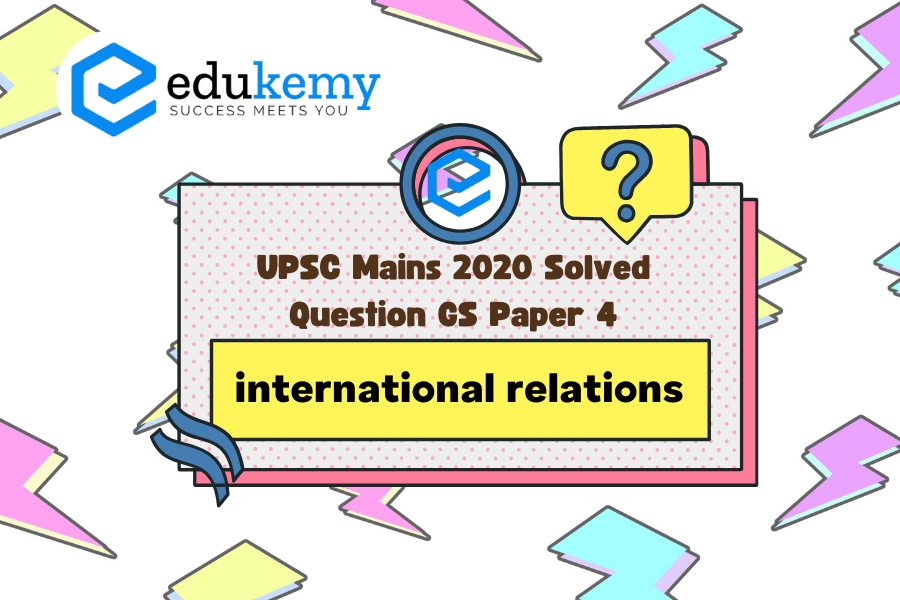In the intricate web of international relations, the assertion that “the will to power exists, but it can be tamed and guided by rationality and principles of moral duty” encapsulates a nuanced understanding of the dynamics at play. While nations often pursue their interests driven by power dynamics, the presence of rationality and moral principles serves as a check on unbridled ambition and aggression. Throughout history, states have engaged in power struggles, yet the evolution of international norms and institutions demonstrates the potential for rationality and moral duty to temper these tendencies. Treaties, alliances, and diplomatic negotiations are mechanisms through which nations seek to reconcile their interests with broader ethical considerations. Moreover, the rise of multilateralism underscores a collective effort to manage power dynamics within a framework of shared values and principles. Thus, while the will to power persists in international relations, its manifestation can be tempered and guided by rationality and moral duty, fostering a more stable and cooperative global order.
Tag: Ethical issues in international relations and funding.
Contents
Decoding the Question:
- In the Introduction, mention the significance of rationality and moral duty.
- In the Body, examine the statement in detail.
- Conclude, by mentioning the importance of rationality and moral duty.
Answer:
‘The will to power exists, but it can be tamed and be guided by rationality and principles of moral duty.’
In today’s globalized world, power is not exercised in isolation but rather it also has a moral duty attached to it. Therefore, the role of rationality and principles of moral duty is becoming more important as there has been increased interaction between different countries.
Rationality: It is the quality of being in accordance with reason or logic. It cannot be arbitrary in use rather power needs to be exercised based on sound cognition and empirical evidence. For example, in international relations, there are conventions, and customary rules which guide the actions of a nation and these principles are based on rationality. Thus, a nation does not just explode a nuclear bomb based on irrationality or subjective disposition but rather is guided by the overall rationality of the action.
Moral Duty: It is the duty performed by a country based on its moral obligation (not legally bound). The exercise of power needs to attain the basic ethical principles of equality, integrity and compassion.
- Rationality and principles of moral duty provides legitimacy or withdraws the legitimacy of the actions of governments.
- For example: End of slavery although began with rebellions and revolutions, yet its ultimate demise at the global level was due to the loss of international sanction.
- There have been many attempts at forging general agreement on the composition of human rights based on the principles of rights and responsibility— the best known being the Universal Declaration of Human Rights as well as the United Nations Charter, the Geneva Conventions, and additional international agreement such as the Refugee Convention.
- Rationality aims at a peaceful world, respect for all and equality while forming international organizations, declarations & forums.
- E.g.: The demand for equality in the IMF and UNO shows the demand for adhering to moral and rational principles in a way.
- Rationality and moral duty in global environmental governance seeks to ensure environmental justice on principles like “common but differentiated responsibilities”. So a huge contrast can be seen between India’s earnest efforts and the USA running away from the responsibility by leaving the Paris Agreement.
In this nuclear age, individual power aspirations can’t be achieved, in fact, their traces will result in hatred, destruction and isolation. This calls for rather not being adventurous and controversial in any manner. Since moral laws bind all rational beings universally, a reason for doing something should reflect freedom, dignity and transparency towards other nations, so that the world can rationally view the end.
Thus, even though the will to power exists, on various occasions the principles of rationality and moral duty have helped in avoiding undue wars, and conflicts between nations and has helped in creating an atmosphere of mutual trust, goodwill and confidence among all the countries.
In case you still have your doubts, contact us on 9811333901.
For UPSC Prelims Resources, Click here
For Daily Updates and Study Material:
Join our Telegram Channel – Edukemy for IAS
- 1. Learn through Videos – here
- 2. Be Exam Ready by Practicing Daily MCQs – here
- 3. Daily Newsletter – Get all your Current Affairs Covered – here
- 4. Mains Answer Writing Practice – here


